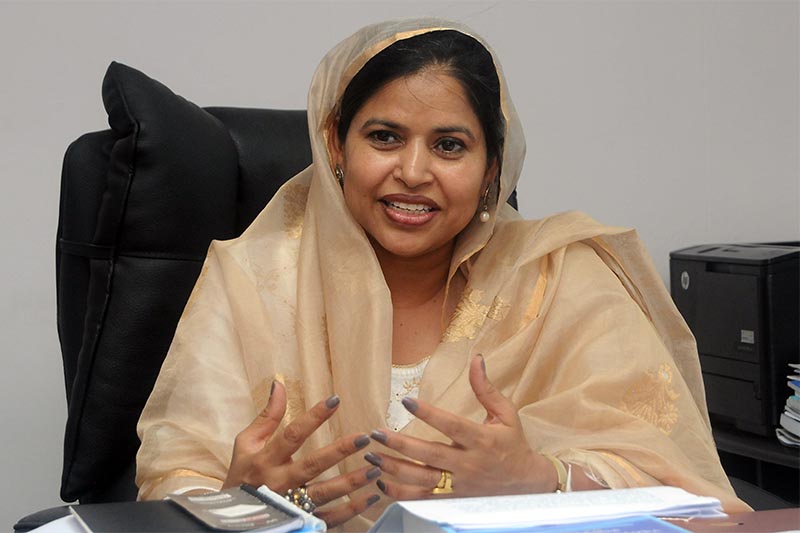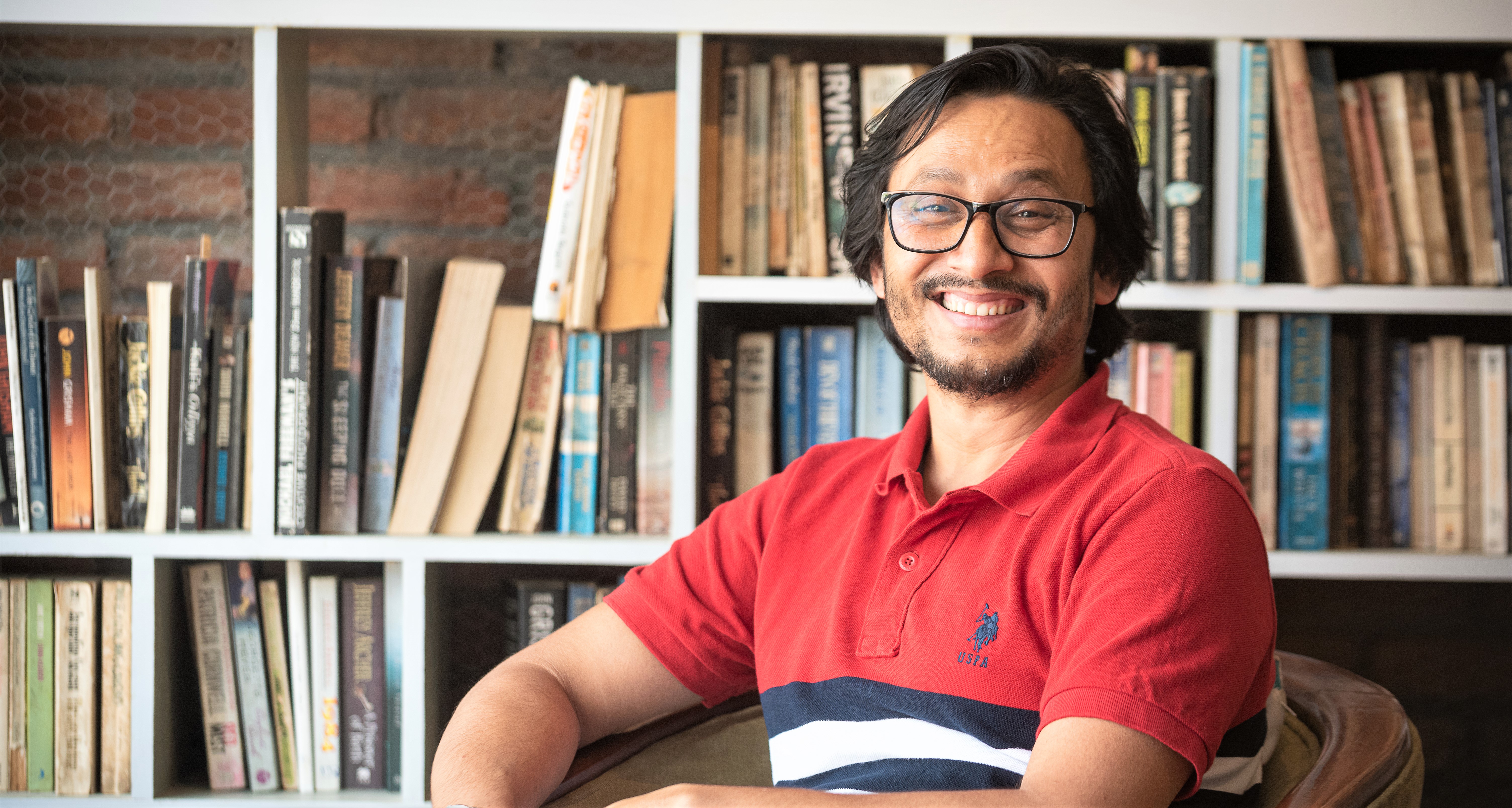My Vision for Nepal | Establish a national culture of human rights

Establish a national culture of human rights
Three ways to realize the vision:
1) Put into practice the constitutional guarantees concerning our rights.
2) Make the government realize and implement requisite legal provisions.
3) Intensify the momentum for justice for each and every individual.
Those who work for social justice always look at things from a grassroots level. There, you see how people’s basic rights are being violated in their daily life. To right these wrongs, we have to establish a culture of human rights and activism—which is still missing in Nepal.
There are human rights our constitution still needs to acknowledge, but to an extent, it has also guaranteed some rights. The problem is, seldom do we honor these rights. For example, our constitution guarantees no one will be subjected to any discrimination or injustice. Yet that is hardly the case in real life, and yet our society appears indifferent to this injustice. Sometimes I feel our society doesn’t want to accept the peaceful co-existence of its people.
Individual ignorance aside, our government also doesn’t look at these illegal activities closely and thus the culprits of social injustice go unpunished. Even our Prime Minister KP Oli, the executive head, often utters statements like, “The state can’t interfere in family problems.”
This is such a disgrace for all those, men or women, who experience discrimination, injustice, and violence in the family. For instance, you and your sister both know you are equals, but your parents don’t give your sister her share of fundamental rights. In that case, the state should interfere as the constitution guarantees that no one’s rights will be violated.
I am often reminded of the closing speech of Dr. Rajendra Prasad, the first president of India, in the Constituent Assembly in 1946. He had said, “Whatever the constitution may or may not provide, the welfare of the country will depend upon how the country is administered—that will depend upon the men who administer it.” If the elected people are capable and of high character and integrity, they can make the best even of a defective constitution. Yet that is hardly the case here.
A good thing is that a sort of a constitutional mechanism has started in Nepal, and the constitution itself is the biggest such mechanism. Our constitution is the ground by stepping on which we can ensure people’s rights and justice. The biggest challenge now is to ensure that the voices of a large segment of the society that had heretofore been marginalized are heard and their problems are addressed.
Even after the promulgation of the new constitution, the ruling class has been trying to deal with contemporary issues in a traditional manner. It feels like we are still in the phase of implementing the Muluki Ain under the Rana regime. Seldom do our politicians work for the underprivileged.
A large share of Nepalis doesn’t know anything about the constitution. As a democracy matures only when its citizens understand the constitution, we should prioritize their political and constitutional education.
The case of Rupa Sunar shows how discrimination and injustice prevail in our society. While discussing the case, some people on social media started saying we don’t need quota systems. We have started a culture of prejudice and it could in the long run hamper our society and the underprivileged community. That people are still advocating for injustice is a shame. Whenever you talk of the problems of the minorities, those in the majority always ask: Who are the minorities?
Despite all these problems, I think we have made a lot of progress. Our youths are more progressive than our generation and we have to rely on them for a better future. They need guidance to help them pick the right path, but I have no trust in our guardians i.e. the politicians.
This world is a global village and our youths should benefit from being a part of it. Also, earlier, only a limited group of people used to discuss social issues, but now every individual has started giving vent to their problems, which means they also have to over time discuss national issues. These concerns, debates, and discourses should be broadened as they help strengthen the society. Learning should never stop.
I respect each person who has chosen to stay in Nepal and is struggling with the challenges all around, even when they are surrounded by an uncertain future. Nepalis don’t need big things to be happy, they are satisfied with even small stuff and they are always hopeful. I too derive much optimism from this fact.

Quick Questions:
Can we consider the government failure to provide timely vaccines a human rights violation?
Of course it is a huge human rights violation. It is the state’s job to look after its citizens’ wellbeing but ours clearly isn’t doing that. Vaccines are a life-and-death issue and the government should be doing everything to procure them.
What were your favorite lockdown reads ?
I re-read Prashant Jha’s Battles of the New Republic: A Contemporary History of Nepal and Sudheer Sharma’s Prayogsala.
A quote you live by?
“I’ve learned that the people will forget what you said, people will forget what you did, but people will never forget how you made them feel.” – Maya Angelou
related news
My Vision for Nepal | See Nepali women’s football team lift SAFF championship
April 18, 2022, 9:43 p.m.
My Vision for Nepal | A top global tourist destination
April 11, 2022, 6:19 p.m.
My Vision for Nepal | A clean country built on sustainable and socially inclusive waste management
April 5, 2022, 12:42 a.m.
My Vision for Nepal | Internationally acclaimed Nepali movies
March 28, 2022, 8:02 p.m.
My Vision for Nepal | Equal respect for all genders: male, female and queer
March 21, 2022, 7:11 p.m.
My Vision for Nepal | Economic growth and socio-economic development
March 14, 2022, 2:29 p.m.
My Vision for Nepal | Zero trafficking of Nepali people
March 7, 2022, 5:13 p.m.
My Vision for Nepal | A healthy, educated, and hospitable country
Feb. 28, 2022, 7:47 p.m.











Comments